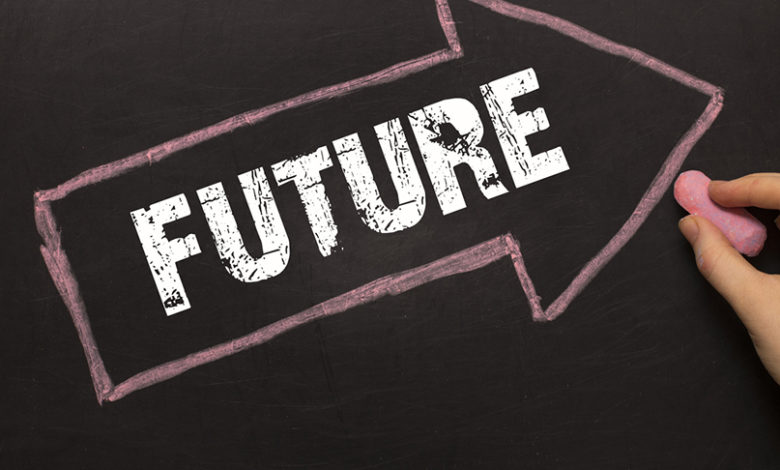The world of science fiction is now a reality for marketers looking to make a big noise and advertisers wondering where to apportion their budget. Plus, bots are hot for generating insight and video games are leading the field for consumer engagement.

The League of Legends attracts audiences of tens of millions and Juniper predicts marketers should take note of the growing popularity of eSports in the coming months.
It’s the time of year for trend-spotting and research that examines the race to the top of the toolkit popularity stakes for hard-working marketers aiming to stay ahead of the game.
The results are in – and it seems the world of science fiction is now a reality for marketers looking to make a big noise and advertisers wondering where to apportion their budget – bots are hot for generating insight and video games are leading the field for consumer engagement.
Indeed, Juniper Research says eSports will become mainstream in 2017. The researcher reports there will be more than 190mn unique viewers next year across mobile and online channels. Brands, take note: viewing figures are beginning to rival those of traditional sporting events – the League of Legends Championship attracted a peak audience of 14mn in December 2015 and Juniper anticipates adspend on the sector beginning a sharp ascent now.
Forecasting by advertising agency Zenith Optimedia, owned by France’s Publicis, puts global advertising expenditure on social media comfortably ahead of newspapers by 2020 and accounting for 20 per cent of all internet advertising in 2019.
 Meanwhile, marketing intelligence service WARC – in association with Deloitte Digital – has presented its Toolkit 2017 for marketers around the world and Jason Warnes (pictured), Digital Marketing partner of Deloitte Digital, summarised the findings: “As the pressure to improve marketing performance continues, the three key challenges I see for 2017 are: how clients will optimise their marketing experience; how can they use marketing technology to automate and personalise their customer experience; and how can they use disruption to define, develop and rapidly deploy new services and experiences to improve customer experience.”
Meanwhile, marketing intelligence service WARC – in association with Deloitte Digital – has presented its Toolkit 2017 for marketers around the world and Jason Warnes (pictured), Digital Marketing partner of Deloitte Digital, summarised the findings: “As the pressure to improve marketing performance continues, the three key challenges I see for 2017 are: how clients will optimise their marketing experience; how can they use marketing technology to automate and personalise their customer experience; and how can they use disruption to define, develop and rapidly deploy new services and experiences to improve customer experience.”
The six marketing predictions WARC and Deloitte Digital noted are:
- Tech: The marketing applications of Artificial Intelligence (AI) Data mining and analysis that is normally done manually may be done faster, quicker and better using AI. As such, AI is predicted to have a major impact on the marketing industry with key areas being insight generation, chatbots, personal assistants and optimisation of media buying. While the technology is still emerging, one study found that 55% of global CMOs expect AI to have a greater impact on marketing and communications than social media.
- Brand Experience: The emerging roles of Virtual Reality (VR) and Augmented Reality (AR) As the advertising marketplace becomes more cluttered and young consumers opt out of receiving marketing messages, brand experiences that cut through, such as VR and AR, are increasingly valuable. After years of promise, VR is becoming a viable mainstream marketing tool which focuses on experience and emotional engagement. In the wake of Pokémon Go, there are a number of emerging opportunities in AR in particular around product trial and utility.
- Content: How video is transforming social Social video is experiencing massive growth as a content marketing format and is turning social platforms into broadcast media. Brands are finding success with approaches that prioritise quality over quantity, consider emotional and social motivations for content engagement, and focus on a three-second window of opportunity to grab consumers’ attention. A growing number of brands are also experimenting with live video for content that is exclusive, newsworthy or requires live audience involvement. But video measurement will be a major challenge in 2017.
- Social: The rise of ‘Dark Social’ and messaging apps The rise of chat or mobile-focused messenger apps such as WhatsApp, Facebook Messenger or WeChat is fuelling the rise of ‘dark social’ – conversations that are not trackable by marketers. This has two implications: brands may be missing out on insights into their brand or category, and chat apps are moving social marketing towards conversations.
- E-Commerce: The direct-to-consumer opportunity Low-cost start-ups have disrupted established business models with customer-centric, online businesses. Innovative apps, subscription services and engaging branded social platforms have encouraged impulse purchases and trials with seamless transactions and personalised experiences. The challenge for established brands is responding to these new models as they look to increase direct-to-consumer opportunities. The new year is likely to be an area of considerable experimentation.
- ROI: Effectiveness in the digital age Major FMCG advertisers are beginning to focus more on mass reach using traditional media to drive sales growth versus close targeting via digital channels. In addition, fresh research has suggested that brands are over-investing in short-term ‘activation’ media, undermining the impact of creativity and harming long-term effectiveness. Meanwhile, media platforms are racing to prove the effectiveness of their channel.



 Meanwhile, marketing intelligence service
Meanwhile, marketing intelligence service 



Leave your thoughts